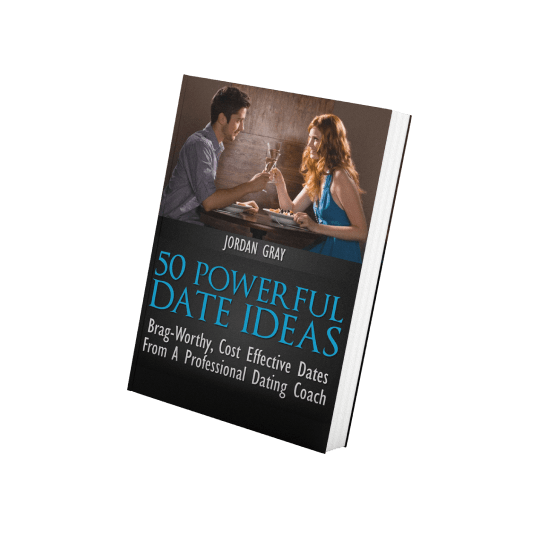Have you been lying awake at night, thinking to yourself… ‘Hmm… cold feet or wrong person?’
Fortunately, there is a huge difference between having normal, healthy, appropriate nerves or a sense of hesitancy around the person you’re engaged to, versus there being legitimate red flags that should be cause for concern.
In this article, I will help you distinguish between normal, appropriate anxiety, and there being a genuine misalignment in your relationship.
Cold Feet Or Wrong Person?: Knowing The Difference
Some people will tell you that any sign of ‘cold feet’ is a problem.
They’ll say that any nerves, hesitation, or anxiety is a bad sign that means that you’re about to marry the wrong partner for you.
In reality, nothing could be further from the truth.
As humans, we are a dynamic, complicated jumble of different emotions. Our past experiences (especially our childhood and our past romantic relationships) shape us in millions of tiny, often imperceptible ways. And each person varies in how sensitive, attuned, anxious, or analytical they are as a default.
So when people suggest that having *any* amount of nerves leading up to a marriage is inherently an issue, they are approaching humans with far too simplistic of a lens.
And… it is also important to acknowledge that sometimes a persistent emotional sense of fear, anxiety, or dissonance is trying to point your attention towards something legitimate that you need to give some real thought to.
So if you’ve been losing sleep at night, stressing out more than normal, and overthinking until your head hurts, the following five things will guide you in sorting out whether or not your fears are just a passing wave of emotion, as opposed to something you need to take more seriously.
The following is deep, often challenging self-reflective work.
Fail to do this, and you could get hitched to the wrong person (which can have multi-decade negative consequences). But lean into this, and you’ll set yourself up for a smoother life. Your future self will thank you.
Alright, let’s dig in.
Cold Feet Or Wrong Person: 5 Things To Consider

1. Understand what you’re primarily looking for in a partner
Ultimately, every major decision we make in life (where to live, what to do for work, whether or not to have children, who to marry, etc.) will have pros and cons to it.
This is inevitable. There is no perfect solution where all of our needs are met flawlessly.
However, it is vitally important that you know who you are and what you really need (in life, and in your relationship).
Enter: your core values.
Set aside some time getting to know your core values. Your core values are the things in your life that matter more to you than anything else.
For example, perhaps you value beauty, adventure, and creativity. Or maybe you value peace, connection, and stability.
If you’re not sure of your core values, there’s two things you can do to locate them.
For the first exercise, take out a blank sheet of paper. At the top of the page, write, ‘Something that makes life worth living is…’, and then complete that sentence at least 20-30 times. Once you’ve done that, see if you can locate some common threads between your answers.
For the second exercise, you’ll be tracking yourself over a period of a week or two. Any time one of two things happens, you’ll want to write them down somehow (either in your phone, or in a small journal you carry around). The two things you’ll be making note of are times when you notice 1) your heart feeling extra happy, or 2) your heart feeling the most angry, hurt, or sad. At the end of the collection period, again, you’ll want to look for the common through-lines of your answers. What do you notice? What types of things invoke strong emotional responses in you, either in the positive or negative direction?
Once you’ve located your core values, you can then feel into… is my significant other aligned with these values? Do they seem to share some of them? If my values aren’t their top values, are they values that they are supportive of for me in my life?
Someone who shares and/or supports your core values is a good thing. Conversely, someone who has zero overlap with your core values and/or doesn’t support (or actively tries to suppress) your core values, could be an issue long-term.
2. Observe how they make you feel
The mind is a Pandora’s box of noise. It’s job is to feel anxious, uncertain, and to question everything.
So it’s important to drop below the level of mind-thought, and feel into how your body responds when you’re around your partner.
Does your belly/solar plexus tense or relax? Do your hands clench up, or reach out for them? Does your heart feel soft and open, or tight and guarded?
When you’re about to see them, are you more excited or anxious? And when you part ways, do you primarily feel nourished and grateful, or drained and relieved?
Now, our bodily responses aren’t a black-and-white answer, because sometimes our somatic experience of being around our partner can be unfairly influenced by our past relationships and other factors. But it is still something to be aware of, and simply observe with a neutral, curious awareness.
Another thing to feel into, is if someone you just met told you, ‘Wow, you’re so much like (your partner’s name)…’, would your first reaction be good or bad? As in, would you primarily feel honored and happy that they compared the two of you? Or would you feel defensive, or even hurt? Again, simply something to notice.
3. Audit whether this is situational stress or about individual red flags
Being engaged is a time of life with a lot of change, and situational stress.
You’re planning a wedding, navigating subtle shifts in your familial relationships, and grieving the loss of your single self. This time of life is marked with a lot of identity-level shifts, which brings about a lot of stress even for the most stable, happy people.
But it’s important to not project the stress of this particular season onto your partner and make it about them when it might not be about them at all.
If you’re feeling the pressure of the season, that is entirely normal. But if you’re feeling stressed because your internal magnifying glass is trying to point out your partner’s legitimate red flags, then that’s something else altogether.
If your partner is often rude, biting, dismissive, or shaming, that’s something to look at and potentially discuss with them.
If your partner is in active addiction (with substances, or behaviors) and it’s negatively impacting your relationship, that’s something to look at.
And if your partner is explicitly clear that they have a vision for their lives that is wildly disconnected from what you want with yours, then that’s also something to look at.
4. Take note of any similar patterns in past relationships
Assuming you’ve dated anyone else in your life before your partner, you’d be wise to audit whether or not you’ve felt similar feelings in the past.
Now, the feelings you’re feeling now are likely heightened (if this is your first time being engaged) and that is because the stakes are higher now versus back then.
But it can be helpful to remember that, “Oh right, I have been anxious about partners in the past as well. So perhaps this is, at least in part, just a feature of me, and not necessarily a thing that means I shouldn’t be with this person.”
It is a fact of life that some people simply lean more towards the anxious side of the spectrum. And that’s just fine! We all bring our unique gifts to the table in this big, multi-billion person planet.
So if you’ve noticed yourself feeling anxious in past relationships, that’s one data point to be aware of, and potentially let yourself off the hook a little.
5. Slow down and feel yourself
Tune into your internal dialogue. Are you rationalizing away legitimate concerns? Ignoring deeper inner wisdom? Feeling a deep sense of peace (in your body/heart) despite the nerves?
As I mentioned, the mind will always express fears, doubts, concerns. That’s just what the mind does.
When you slow down and feel deeply into yourself…
When you trade the ‘what if!?’ thinking for ‘what is’ thinking…
And when you trust your intuition more than your anxiety…
What do you notice?
What do you feel?
If you’re finding it especially difficult to pull out of the mind’s death-spiral into fear-based thinking, try going for a walk. Ideally, try going for a walk in nature. Move slowly, intentionally, and feel yourself. What do you notice then?
Beneath the ever-present mind-chatter, you’ll notice yourself leaning one way or another. My recommendation: trust that voice.
When To Seek Outside Support
Still not sure whether you should stay or go? Double down and commit, or call off the wedding ASAP?
The next step would be to reach out for external support.
Ask a friend for their thoughts. Ask a trusted parent, or mentor. Hire a local therapist. Or talk to me.
The ‘Should I stay or should I go’ conversation is one of my favorites to have. So if you’re still uncertain as to what you should do, I’d recommend checking out some of the resources below, and/or applying on this page to have a conversation with me, so we can get you clarity one way or the other.
Conclusion And Further Resources
Remember, all relationships involve deeply nuanced challenges that you’ll need to chew on from time to time. You are not failing. This is a normal part of being human.
You are not the first person to experience engagement anxiety, and you won’t be the last.
And I also understand (and have personally lived) how hard it can be to feel like you’re drowning in your thoughts, fears, and worries. But you are not alone.
Ultimately, coming into awareness of what it is you want from life, and prioritizing that, and then seeing if your partner is compatible with that vision of your life, will get you far.
If we’re meant to talk to each other in the near future, I’m excited to connect with you. And if not, I wish you the absolute best of luck in your journey.
Dedicated to your success,
Jordan
Ps. Do you feel unsure about whether or not the person you’re engaged to marry is right for you? Afraid of being an anxious mess on your wedding day? I am here to support you in getting clarity on this vital decision. You can apply to work with me on a 1-on-1 coaching session via my coaching page. For this topic in particular, I am always happy to prioritize speaking to you as soon as possible.
Pps. If you enjoyed this article about cold feet or wrong person, you’ll also love checking out the following resources:
– Engagement Anxiety: Why Am I More Afraid Than Happy?
– Growth Feels Like Death, Because It Is Death
– I Used To Think That Men Who Got Married Were Idiots
– Emotionally Engaged: A Bride’s Guide To Surviving The Happiest Time Of Her Life (book)
– Also, here is a recent podcast episode (below) of my wife and I speaking about engagement anxiety, and all that came up for us as we were navigating this tricky time in our lives.







